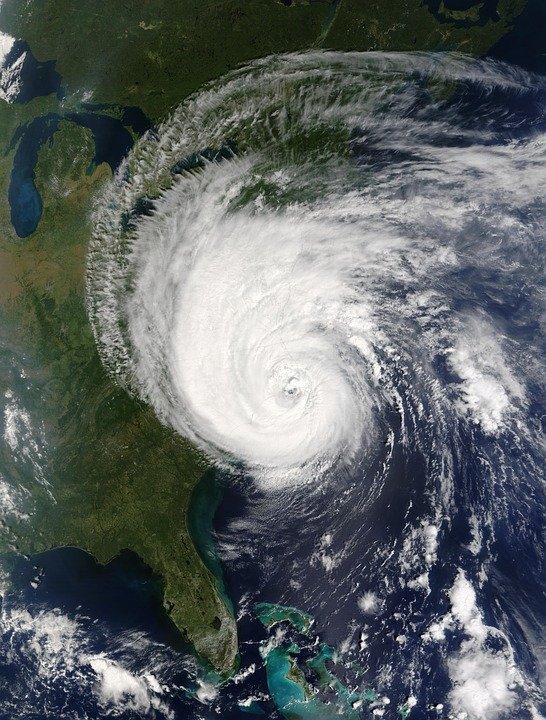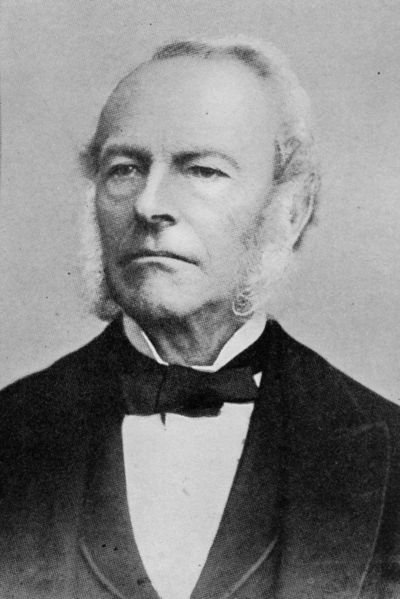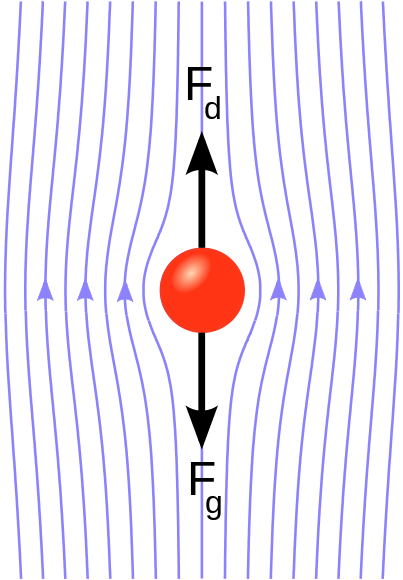
Source of image of pixabay
The ambience can be considered to be a thermal machine, the heat source in the equatorial zone, where there is a clear surplus of energy and a drain in the polar regions, which have a clear deficit of energy. A function of the ambience is of trasformar the potential energy of the heat difference between tropic and the poles in kinetic energy of movement, that trasporta the heat you bring in these.
If the ground was not turning the warm air it would climb for convection in the equator, which would sink and would return as surface wind leaving part of his kinetic energy and rest of his heat in the friction with the soil. As the ground turns the forces of coriolis deforms this trajectory towards the north hemisphere so that the flow towards the poles turns towards the East and that of return turns was doing the west.

George Stokes (1819-1903), source image of mastery of Wikimedia Commons, after to photograph by Fradelle & Young
Law of Stokes
The fall of an object in the bosom of a fluid turns out to be braked by the stickiness of this one, where the above mentioned law affirms that the delay depends between other causes of the stickiness of the fluid and also the size of the body according to his speed in the bosom of the fluid. It is valid in the movement of spherical small particles moving at low speeds with the following formula:

For the case of a relative speed between the sphere and the way lower than a certain critical value we have:

V8: it is the speed of fall of the particles (speed limit)
G: it is the acceleration of the gravity.
Pp: it is the thickness of the particles.
P f: it is the thickness of the fluid.
η: it is the stickiness of the fluid.
r: it is the equivalent radio of the particle.

A body that fulfills the law of Stokes turns out to be submitted to two forces, the gravitational one and that of dragging. In the moment that both equal his acceleration it becomes void and his constant speed, source image of mastery of Wikimedia Commons, Author Kraaiennest
Have the following contributions:
Influence of the stickiness of the water: The speed of sedimentation of a thin particle changes in inverse function to the stickiness of the fluid, which is inversely proportional to the temperature, this way the water of sea to 0°C has a stickiness of 0,01877 poises (g/cm seg), whereas to 20°C it is 0,01075. In the seas and warm oceans, the speed of sediments of the thin particles, which obeys the law of Stokes, this way almost twice Superior than in cold water.Textual taken appointment of: Geology - Page 196 for Jean Dercourt, Jacques Paquet - 1984.
The tensile one of viscous effort There be supposed a portion of fluid, which on his movement experiments a certain force of friction for his friction with the contiguous particles of fluid. The force of friction dFroz that experiences a particle of fluid for his contact with other one across an infinitesimal area dS comes given for:

Textual taken appointment of: Essentials of Mechanics of Fluids - Page 331 for Juan Luis González-Santander Martínez, Gloria Castilian Estornell - 2014.
Grace the law of Stokes explains to us, the behavior of this phenomenon that happens in our ambience, for the application of the beginning of fluids, where the result is that the circulation is divided in a series of circulations of character more zonal than southern, that is to say about the Earth along the meridians, in such a way that only a tenth part of this movement projects in the direction equator – poles in the equatorial zone the air, which is promoted cools down to give to place to the condensation and water premeditation in the tropical zones. In the zone progeny the air warms his relative moisture decreases and they produce drought, the area of subsidencia or atmospheric subsidence is of about 30 ° of latitude system remains this way associated with most of the zone desert terrestrial and with the average position of big anticyclonic semipermeable of the pacific one, the Azores and Indian Ocean in the south hemisphere.
to preserve the moment of his quantity of movement with regard to his terrestrial axis, the air in movement gains speed in his increase of latitude or loses it with his descent, for the concentration of broad speeds in the zones of contact, since the circulatory zones that cause the currents of jet named jet streams, this jet streams piolar does not remain fixed, but it causes perturbations in the positions of the polar front existing an interaction between both, which leads to the formation of the system hoods of cyclones and anticyclones in the air latitudes. A front is the zone of separation of air mass with different characteristics, in this case the mass, dry of air polar, cold, the subtropical most warm and the humid one.
Bibliography
Essentials of Mechanics of Fluids - Page 331 for Juan Luis González-Santander Martínez, Gloria Castilian Estornell - 2014.
Geology - Page 196 for Jean Dercourt, Jacques Paquet - 1984.

Source
Plagiarism is the copying & pasting of others work without giving credit to the original author or artist. Plagiarized posts are considered spam.
Spam is discouraged by the community, and may result in action from the cheetah bot.
More information and tips on sharing content.
If you believe this comment is in error, please contact us in #disputes on Discord